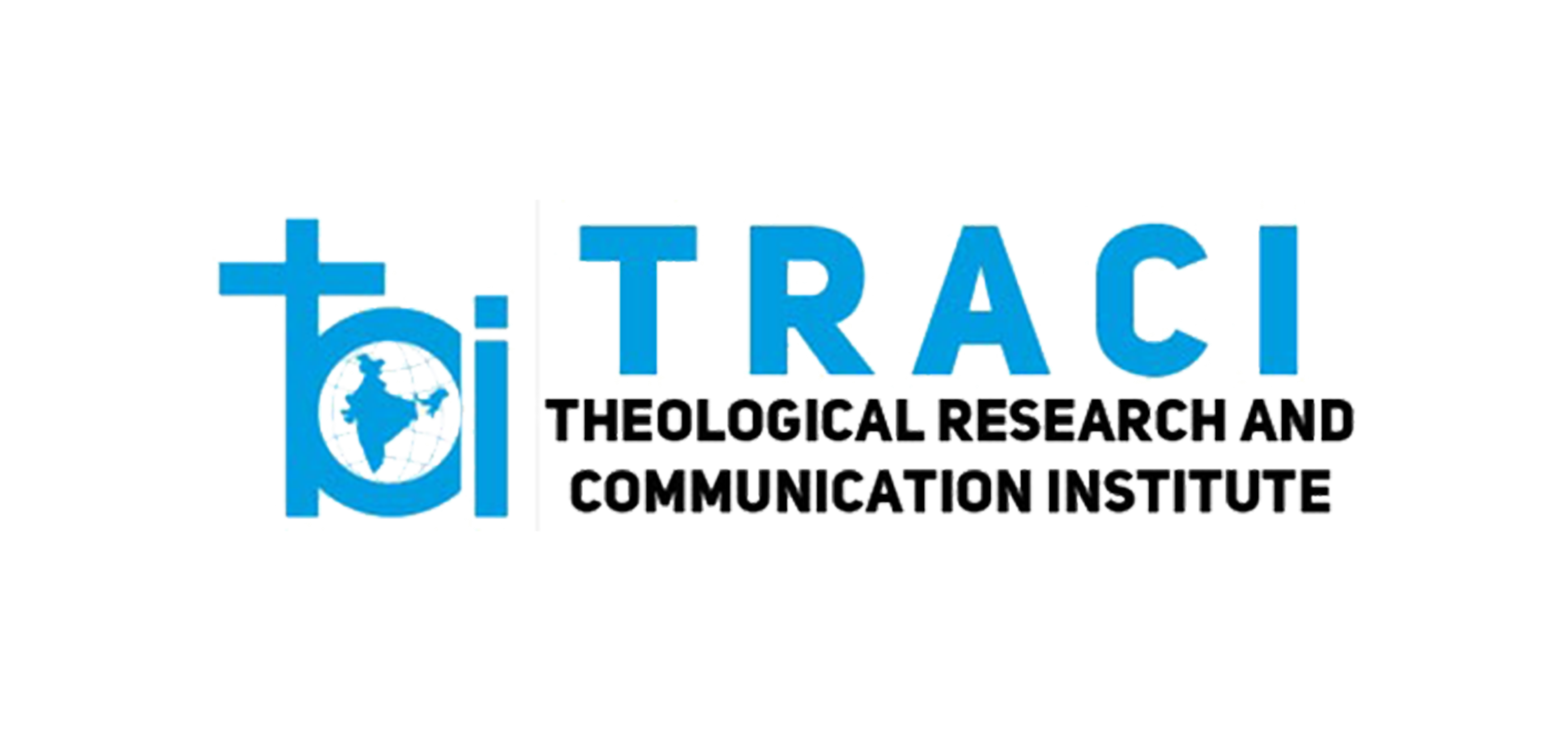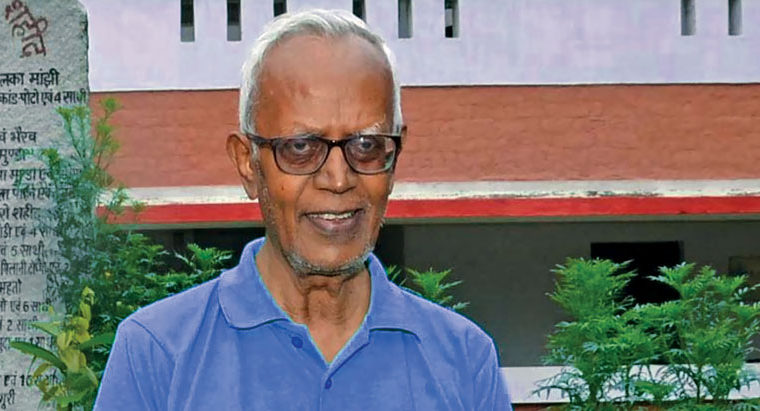“But we will still sing in chorus. A caged bird can still sing.”
Fr. Stanislaus Lourduswamy
On the Chota Nagpur Plateau of the Indian subcontinent lies a dense and rich forest track, spoken as Jharkhand. The State of Jharakhand is one of the recent States added to the Union of India, carved out of the southern part of Bihar in 2000. As one of the leading producers of minerals in the country, the State is a harbinger of many developmental aspirations. Then why are the people of Jharkhand, mostly Adivasi tribes (Ho, Santhals, Oraons…), who own this rich land of minerals, suffering widespread poverty and malnutrition? We have all asked such questions to oblivion. Instead, Fr. Stan Swamy, a Jesuit Priest and an academic, faithfully addressed this inequality, studied the social problem and showed us the hope to resolve it within our country’s Constitutional vision.
Late Father Stanislaus Lourduswamy (1937-2021), who is popular as Fr. Stan Swamy was a Jesuit Priest and a tribal rights activist based in Jharkhand. He had worked in the State on various issues in the Adivasi community, especially questioning the non-implementation of the Vth Schedule of the Constitution which permits setting up of a Tribal Advisory Council, assuring tribal autonomy and welfare in matters of state development. His activism and questioning of injustice resulted in him been implicated in various criminal cases by the ruling state machinery.
In 2018, he was falsely accused by the Pune Police in Bhima Koregaon case along with many other social activists nationwide. In a follow up, he was arrested last year in the middle of a pandemic, accused in the Elgar Parishad case by the National Investigative Agency. He was charged under the draconian UAPA anti-terror law which does not allow bail. He was 83 when arrested and then was forced to spend the rest of his time languishing in a prison that lacked appropriate medical facilities and protocols in a pandemic. He passed away on July 2021 at Mumbai’s Holy Family Hospital due to deteriorating health.
The tribes of Jharkhand mourn Fr. Stan Swamy’s death as they have lost a baton of hope and justice in an otherwise oblivious world. His life has left the Churches and Christians a prophetic legacy to take up in this world.
Fr. Stan Swamy exemplified a Christian’s call to seek justice
The Hebrew word for justice is Mishpat which means to make right. It refers to a person living in right relation with God, with each other and the natural environment. To seek justice is a mandate of a believer’s faith and an expression of his discipleship to Christ because the very character of our God is just. When the Israelites awaited God’s justice, they were not simply asking for rights, they were seeking God’s active duty in establishing those rights. We as God’s children have an active duty in establishing human rights and dignity in our society. When we seek justice, we give witness to the ultimate just society of Christ to come. Fr. Stan stood with the rights of the oppressed and shared with their struggles. The Adivasis became his brothers and sisters. He learned their language and spent his time in educating and strengthening their hopes.
Fr. Stan Swamy’s Social Activism was informed with Critical Pedagogy
In critical pedagogy, teachers invite their students to reflect, ask questions and address the inequalities in their social structure; the students are also encouraged to find creative ways of problem solving. Jesus Christ, our Lord and teacher also employed various forms of teaching such as parables, questions and apprenticeship that created awareness amongst his disciples about the state of their society and vision of a just Kingdom of Heaven. The Word of God warns us about perishing due to lack of knowledge and wisdom. As a writer, Fr. Stan Swamy has employed critical pedagogy extensively and his service for the needy was well supported by his research, knowledge and analysis of the social context of the country. In his years served as the Director of Indian Social Institute, Bangalore, he is known to have begun a series of training programmes using various analytical tools to develop a class of informed youth about the state of the country. In 2010, he published a book about Under Trial Prisoners in Jharkhand, titled Jail Mein Band Qaidiyon ka Sach and based on those facts and data he filed a PIL at Jharkhand High Court seeking justice for the tribal under trial prisoners.
Fr. Stan Swamy called the Churches to Open Up and Help
A Church’s role in politics is bereft with conflicting stands and confusions. It’s a confusion which is rather a gift of modern and western secularism that we have bought so well. The Church’s role in politics is ethical and pertinent when it comes to policy formation. Our ethics are based on God’s compassion to his creation and to the humanity made in his image. In Fr. Stan’s struggle for justice, he had asked various local churches to collaborate in social activism. There were Churches which openly denied any participation in the people’s movement or in questioning the misuse of power. There was always this caution to not become too radical, the institutions were too scared to risk their structures and tradition. Fr. Stan warned this institutionalisation of churches to become a burden or an obstacle that prevents growth. He appealed for de-institutionalisation by opening the Churches to people’s movement and offering logistical support. He wanted the Churches to become open houses of hope for the people in the neighbourhood to acquire justice. He appealed the consecrated people to evolve a spirituality based on ‘Jesus of Nazareth’ and not on ‘Jesus of the Christians’. The former is revolutionary while the latter is being imprisoned inside our churches. When in Jharkhand, he established contacts and reached out to different human rights activists and organizations on how Jesuits could be at the service of the Adivasi. As a Church, we need to vision our engagement with the public as an act of commanded love.
As a community that mourns the loss of such a brave leader, it’s important to remind ourselves and meditate on what Jesus said before his crucifixion and ascendance, he asked us not to weep for him, but for us and our children.
“I would just add that what is happening to me is not unique. Many activists, lawyers, writers, journalists, student leaders, poets, intellectuals and others who stand for the rights of Adivasis, Dalits and the marginalised and express their dissent to the ruling powers of the country are being targeted. Grateful to all who have stood in solidarity.”
Fr. Stanislaus Lourduswamy
Sources
- https://youtu.be/KNVibqUVZDU
- https://www.youtube.com/watch?v=Yva7GxYLVx0
- http://sanhati.com/wp-content/uploads/2016/02/Undertrials.in_.Jharkhand.pdf
- https://standwithstan.jcsaweb.org/images/news/Indian-Currents.pdf
Bincy Mary George
Bincy is an educator. She can be reached at marygeorge433@gmail.com



Is it the end of non violent activism in India then ?
Bincy’s reflections on Fr Stan Swamy is splendid. Her message is loud & clear. “His life has left the Churches and Christians a prophetic legacy to take up in this world.” Very precise & to the point. Her article is highly appreciated.
Wonder if some names of people who constitute the vested interests that are behind Father’s incarceration & martyrdom can be suggested. The problem is that in all these cases, the culprits are always shrouded in secrecy. It may not be fully accurate, but a hypothesis on probable persons & possible roles will help point people in the right direction and the anger of the victims can be focused on their real enemies. Action, especially to pray for such people specifically and to call on God to give justice to the people of our land, especially the poor & the exploited, can result. And maybe it will please Him to revive His Church and have them take up this prophetic legacy of Fr Stan Swamy.
Grateful to God that TRACI is keeping pace with the relevant issues of our times.
Thank you Mr. Puthooran, your feedback is encouraging!
I agree that the culprits to Fr. Stan’s suffering should be held guilty; however the intention of this essay was keeping in mind the probable readers, it was for us as a Church to introspect.
While the general media is constantly reporting on the culprits and reasons of Fr. Stan’s death, I believe it’s no secret or shrouded, at the same time I realize that the name calling without presentation of systematic investigation and proof would be unfair and fruitless. I understand the anger and dismay, the burden of losing him and the way we lost him is heavy.
Though if there is a way we can do justice to Fr. Stan in an informed manner, a plan, we should, collate, collaborate, I am here to act. I think it should be our next step.
Thanks for responding. I appreciate your attitude “I am here to act”.
I think your blog is focussed & I was not trying to point out the need to know more as a shortcoming of your post. Just was, in addition, curious as to more specific pointers as to the culprits. Probably the subject of another article.
Have not read much on the subject. As far as I know there have been no specific names ever suggested in the media, except the generic mentions of industrialists, government & judiciary.
Jesus did not hesitate to point out and severely criticize & expose His enemies.
“If you know the enemy and know yourself, you need not fear the result of a hundred battles. If you know yourself but not the enemy, for every victory gained you will also suffer a defeat. If you know neither the enemy nor yourself, you will succumb in every battle.”
Sun Tzu, The Art of War
Thanks Bincy for a refreshing reminder about the calling of the church and our hesitation and fear to follow the path of Jesus of Nazareth. Two main takeaways from your article is the place of critical pedagogy in Jesus’ ministry in “which teachers invite their students to reflect, ask questions and address the social inequalities in their social structure”. It will be helpful to examine the teaching done in our churches or church run schools, colleges and institutions whether this pedagogy of our Lord is followed. Asking questions about the inequalities and injustice in the social structure runs the risk of being labelled as Maoist, Communist or Urban Naxals something that Fr. Stan Swamy himself was charged for.
Secondly as you rightly point out “ church’s caution to not become too radical and institutions scared to risk their structures and traditions” have indeed become an obstacle for its growth. But perhaps that’s the Faustian bargain we made for our safety.
This is quite an enlightening and interesting write up, Bincy!
On the word “mishpat”, Hebrew also uses the word “tzedeq”. It’s true that in certain circumstances, both words are almost interchangeable. However, the concept of social justice is reflected more in the latter word (tzedeq). The former word (mishpat) leans more towards procedural justice (laws, courts, etc).
Thank you Hmangaiha for that insight. Bincy will find that very helpful.
Also welcome to TRACI. In case you are interested to receive our event details, please do drop a mail at admin@traci.in
Blessings.